During the Spring semester, Professor Christopher Yukins teaches a State & Local Procurement course (LAW 6509) which covers state and local procurement in the United States, drawing on the Model Procurement Code and other leading state and local models. We spoke with Professor Yukins about the course and several exciting developments in this area of the law.

Could you please tell us about your government contracts course, State and Local Procurement?
Thank you again for the opportunity to discuss this online course – and the role we hope it will play in ongoing reform of state and local procurement laws across the United States. This is a time of tremendous potential change, especially at the state level, and we are delighted to have this course – this learning and research platform, really – to bring students into these remarkable developments.
Why did you decide to create this course?
We decided to launch this course in the Government Procurement Law Program almost ten years ago. Since 1960, the Program had focused almost exclusively on U.S. federal procurement law, with almost no attention given to procurement law abroad, or – and this was especially ironic – to public procurement in our own nation’s 50 states, which amounts to hundreds of billions of dollars annually. Besides the obvious points of federal-state overlap, in laws and shared norms, there are other legal junction points between the federal government and state and local procurement. For example, under federal grants, grantees are required by Office of Management & Budget guidance to apply rudimentary federal procurement principles (such as maximizing competition, and avoiding conflicts of interest) when they procure using federal funds.
What are the goals of this course?
The core goal of the state and local procurement seminar is just as in any other of our courses: to make our students better procurement professionals, whether they’re in the MSL program, or in the JD or LLM programs. State and local procurement lends a very different perspective on the law – much more needs to be done with far fewer administrative resources, and so the solutions have to be durable and easily implemented. The specific goal is to help prepare our students to understand state and local government procurement around the United States – a vitally important goal for those who look beyond the Beltway for their careers.
Are there any updates in state & local procurement law that make this course particularly relevant to students this Spring (2022)?
There are two huge developments in state and local procurement that will be particularly important this year. The first is the infrastructure legislation, the Infrastructure Investment and Jobs Act, Pub. L. No. 117-58, which President Biden signed into law on November 15, 2021. Besides launching hundreds of billions of dollars of new infrastructure procurement at the state and local levels, the new law will dramatically expand “Buy American” requirements imposed at the federal, state and local levels — contracting and enforcement issues which will be critically important to the procurement community over the coming years. This year also marks the formal launch of a rewrite of the ABA Model Procurement Code for State and Local Procurement, a model law used by state and local governments around the country. Our Program is an important part of that reform effort (the model law has not been updated in over 20 years), and our students will have a direct opportunity to work on, and shape, this groundbreaking reform.
How does this course complement students’ educational experience at GW Law?
The course obviously complements our federal and international procurement courses – it offers a different perspective on common issues that arise across the global procurement community. What’s less obvious, however, is how it intersects with other parts of our curriculum. The course includes a mock bid protest, for example, which allows students to argue before the D.C. Contract Appeals Board, a very practical experience which complements their study of federal bid protests. And the course reaches across to federal grants, with a guest lecture by a professor from our Grants seminar, so that students can understand the constitutional and statutory issues that frame state and local procurement under federal grants.
What advice would you give to a student or a recent graduate who seeks to pursue a career in state & local procurement?
The most important advice is not to assume that you can predict whether you will work in state and local procurement – it just happens, and you need to be prepared. Our students work globally, in all types of procurement, in both the public and private sectors. As with the rest of the Government Procurement Law program, this course offers our students another important set of tools, to prepare them for careers in a very rapidly growing procurement market, both across the United States and around the world.



